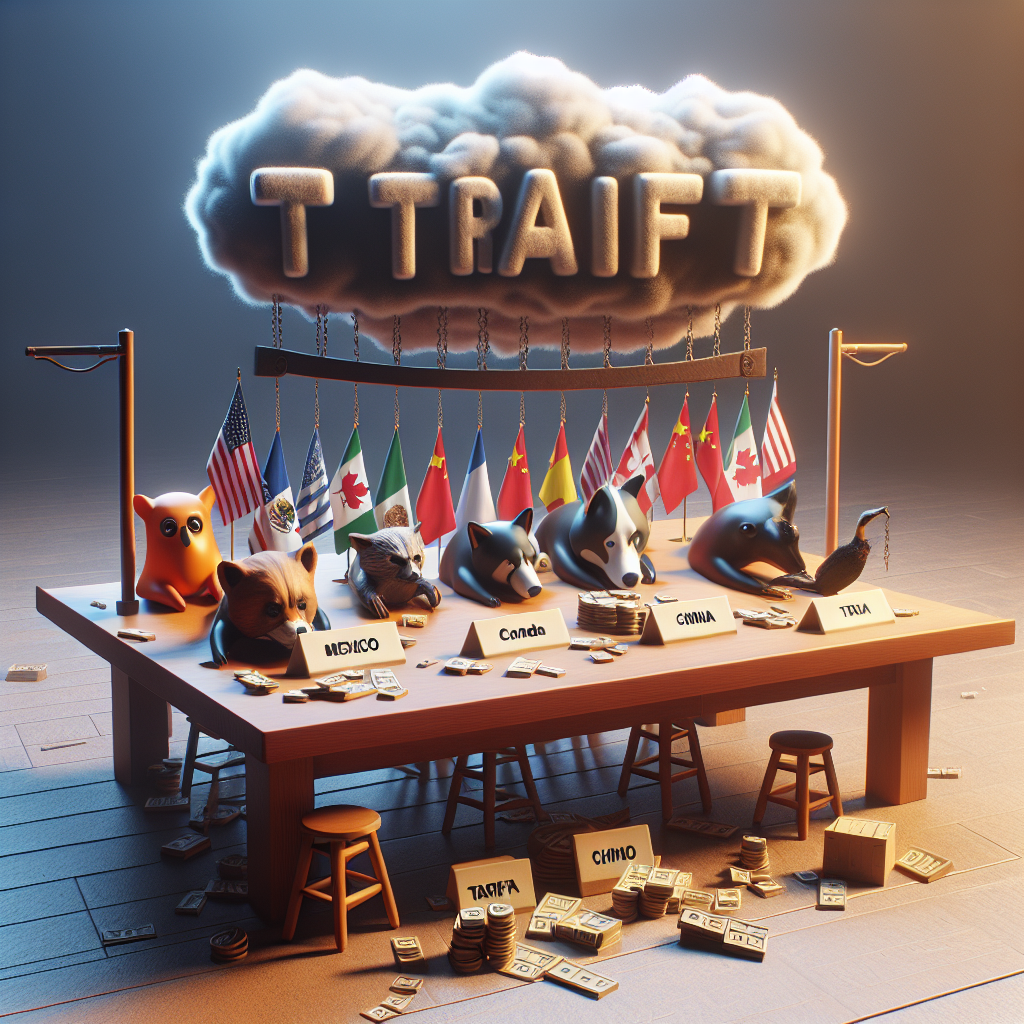ETFs Linked to Mexico, Canada, and China See Declines Amid Trump’s Tariff Threats
In the wake of President-elect Donald Trump’s recent tariff announcements, shares of exchange-traded funds (ETFs) that invest in stocks from Mexico, Canada, and China suffered significant declines. This development underscores the uncertainties and potential volatility surrounding trade relations as Trump prepares to take office.
Market Reactions to Tariff Threats
On Tuesday, the iShares MSCI Mexico ETF (EWW) plummeted by 2.7%, while the iShares MSCI Canada ETF (EWC) decreased by 0.7%. The iShares MSCI China ETF (MCHI) also fell, closing 0.6% lower. These reactions were in direct response to Trump’s announcement on his Truth Social platform, where he revealed plans to impose new tariffs on these countries as soon as he assumes the presidency on January 20.
Trump’s Position on Trade
Stephen Brown, deputy chief North America economist at Capital Economics, commented that “Trump doesn’t see allies, only adversaries.” His statement highlights a shift in the tone of U.S. trade policy as Trump prepares to take swift actions against neighboring countries and economic partners. In his Truth Social post, Trump stated he would “charge Mexico and Canada a 25% tariff on ALL products coming into the United States” and criticized the current open borders policy as “ridiculous.”
The comments outlined Trump’s focus on unilateral trade practices, asserting that Mexico and Canada would pay “a very big price” until they address issues related to drug trafficking and illegal immigration. Brown noted that this immediate threat of tariffs shows that Trump is likely to act more quickly than he did during his first term regarding trade tariffs aimed at Mexico and Canada, alongside China.
Potential Reactions from Targeted Countries
While Trump’s threats have raised alarms in these nations, Mexico’s President Claudia Sheinbaum has suggested that her country could respond with its own tariffs, while expressing a willingness to engage in discussions with the United States. Similarly, Canadian Prime Minister Justin Trudeau reportedly had a constructive conversation with Trump following the tariff announcement, indicating an interest in managing relations despite the threats.
Implications for the United States-Mexico-Canada Agreement
Despite existing trade agreements like the United States-Mexico-Canada Agreement (USMCA), Brown warns that they may offer little protection against Trump’s proposed tariffs, highlighting the vulnerability of both Canada and Mexico in these negotiations. The economic risks for Mexico appear particularly acute, given the nation’s central role in several of Trump’s policy priorities. However, the strong trade relationships suggest that the economic risks for Canada could also be significant.
Concerns for China
Moreover, Trump’s tariff threats are not limited to North America. His announcement indicated that trade with China might also be affected, with a potential additional 10% tariff on imports. These developments create an environment of uncertainty not just for the affected countries but for global markets as well.
Stock Market Trends Amidst Turbulence
Interestingly, despite the declines in ETFs related to Mexico, Canada, and China, the broader U.S. stock market responded positively on the same day. The S&P 500 and the Nasdaq Composite each rose by 0.6%, while the Dow Jones Industrial Average increased by 0.3%. This divergent reaction indicates that while the direct implications of Trump’s announcements weigh heavily on specific sectors, investors continue to focus on overall economic growth and market performance.
Conclusion
The immediate impact of President-elect Trump’s proposed tariffs on exchange-traded funds investing in stocks from Mexico, Canada, and China signifies a potential shift in U.S. trade policy direction, bringing forth a reignited focus on protectionism. As Trump prepares to take office, the world watches closely, anticipating how these changes will affect not only the targeted countries but also the broader global economic landscape.
